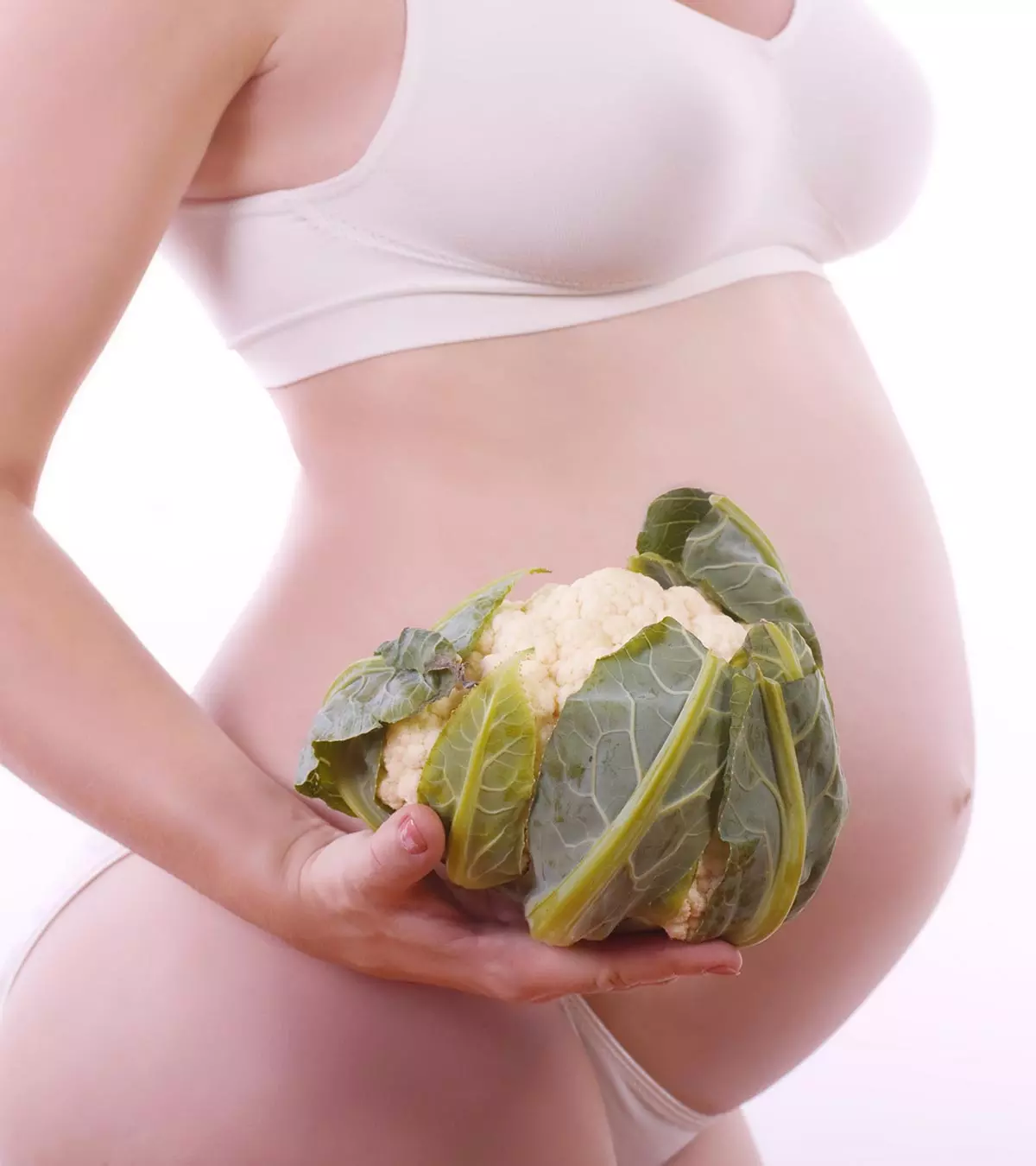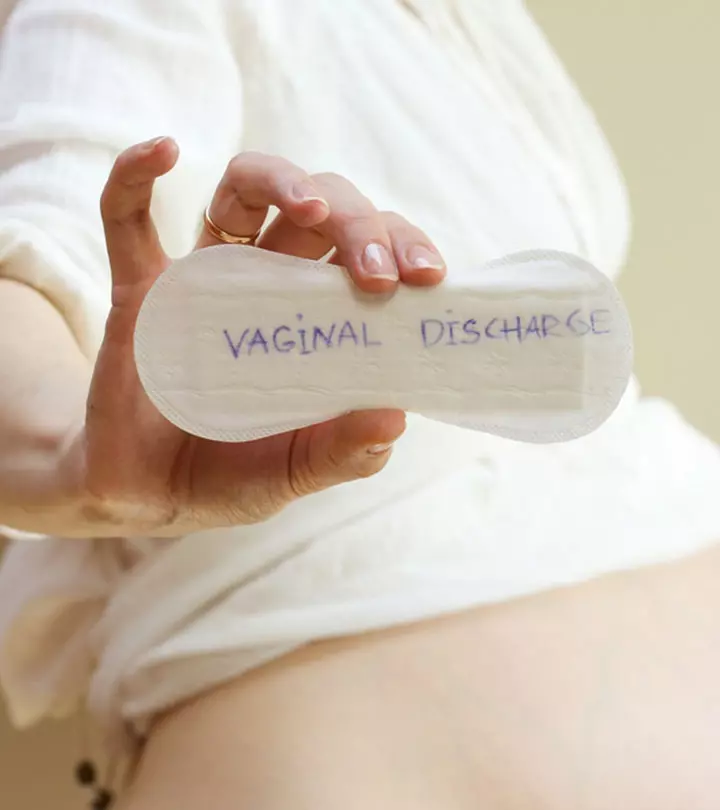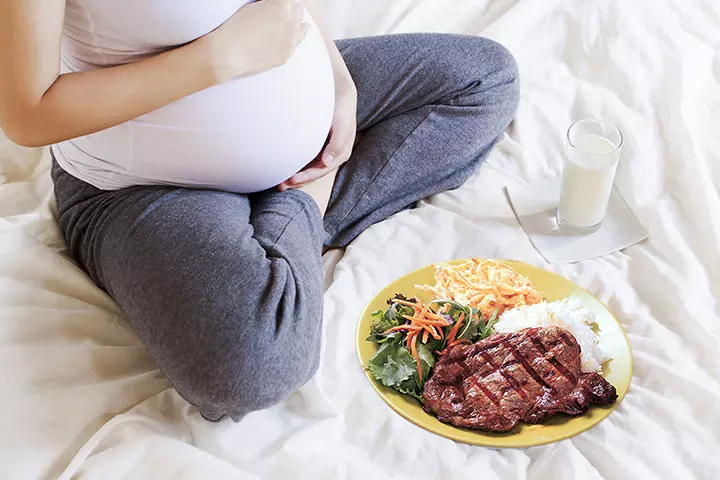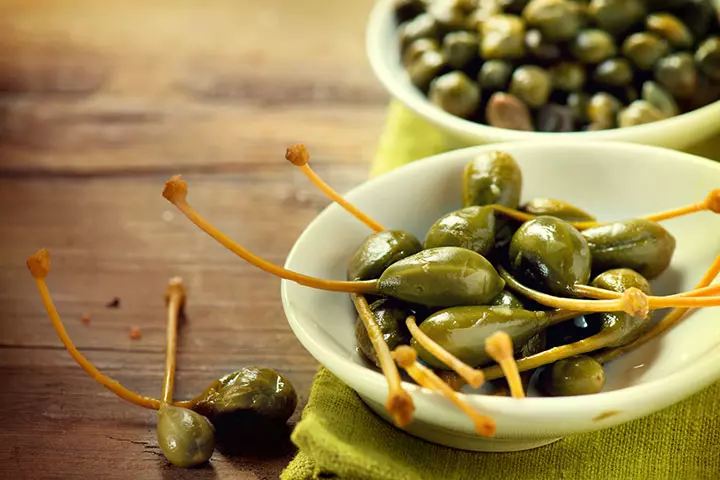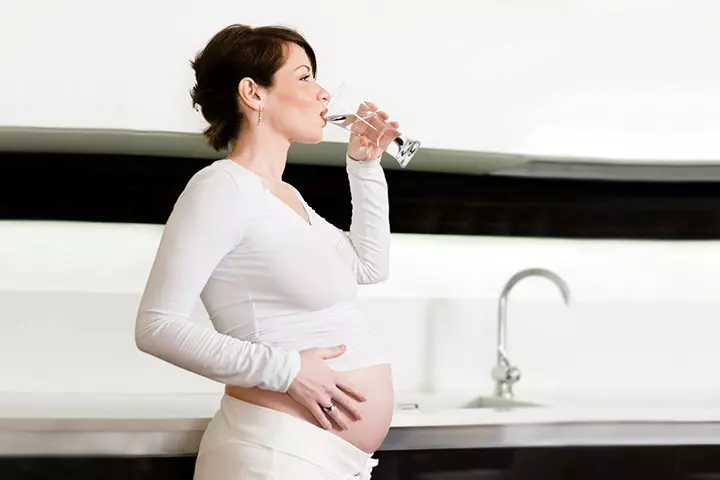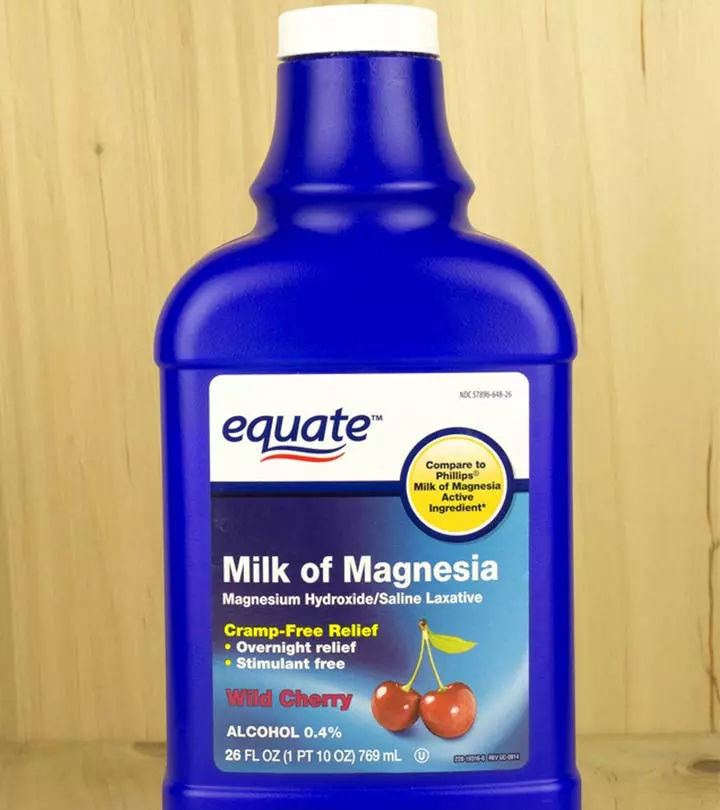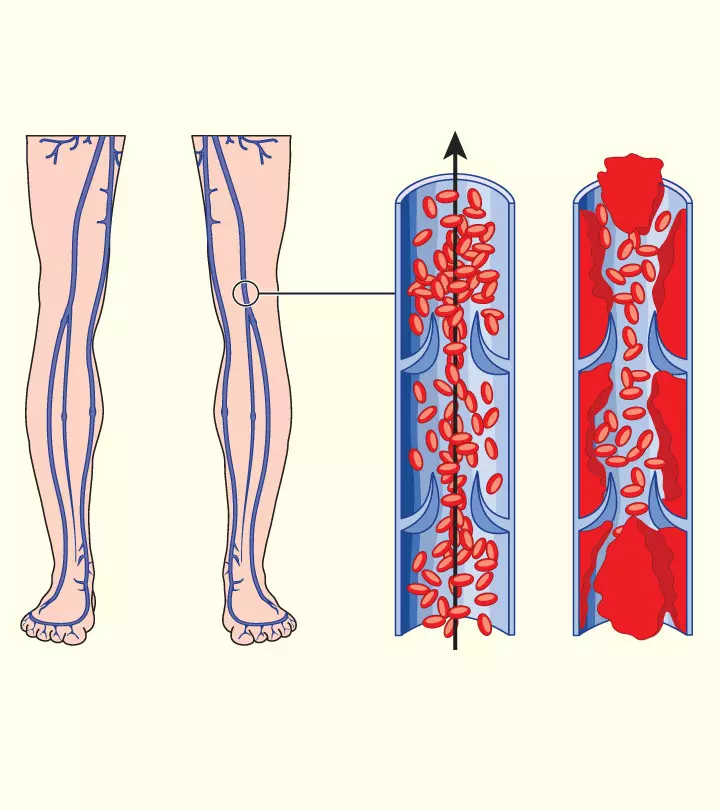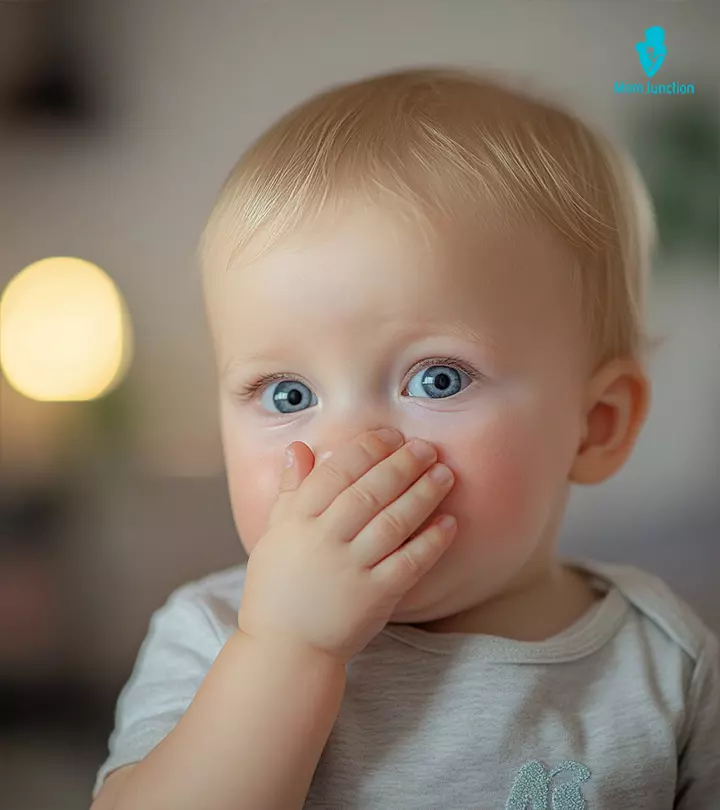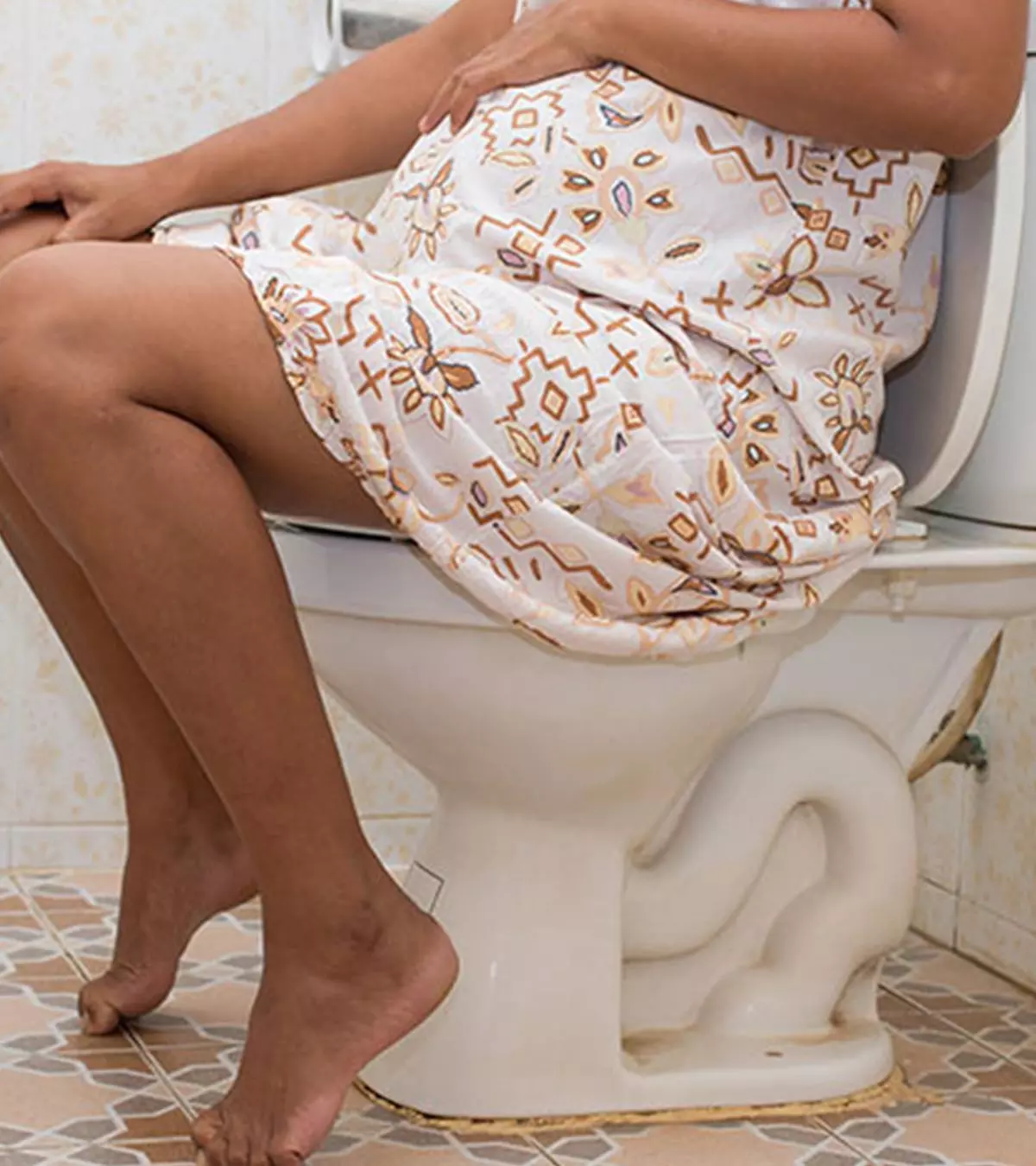
Image: ShutterStock
Pregnant women may feel anxious about anything that happens out of usual. For instance, green poop during pregnancy may cause concern. A change in the stool’s color may occur due to various physiologicaliRelated to the functions of the body. changes in pregnancy. Some other reasons may include conditions not related to pregnancy.
Read this post to know about the causes, management, and signs indicating you should consult a doctor if you have green poop in pregnancy.
Key Pointers
- Green poop during pregnancy is a concern when accompanied by symptoms, such as diarrhea or abdominal discomfort.
- Generally, green poop occurs due to dietary changes and medications.
- However, it may also occur due to underlying conditions, such as viral gastroenteritis and celiac disease.
- Depending on the cause, green poop can last for a few days to weeks.
Is It Normal To Have Green Poop/Stool During Pregnancy?

It is likely that you could pass a green stool during pregnancy. Though it sounds a bit gross, there is nothing to worry about it. Your stools contain many things, such as water, indigestible fiberiInsoluble fibers that cannot be digested and hence are passed whole through feces. , protein, fat, cholesterol, intestinal mucusiEssential mucosal lining in the intestine to protect the intestinal lining from bacteria. , and bacteria (1). As pregnancy causes alterations in the digestion process, you may notice color changes in stool too.
What Causes Green Poop During Pregnancy?
One reason could be that the food has passed quickly through the digestive system, not giving enough time for the bile to break it down completely. This might give a green color to the poop as the microbes did not have enough time to change the bile and feces to brown (2). Green poop could also be due to:
General causes
- Green foods: Consuming lots of green vegetables is a part of a healthy pregnancy diet, and is essential for maintaining gut health. The green pigment, chlorophyll, found in these vegetables could give it a green color. Also, foods that have green dye or added green color may result in green poop (3).
- Purple foods: Foods such as grapes and eggplant may also cause a change in poop color. Purple gets in contact with bile juices and turns into another color.
- Laxatives: If you are on laxatives for constipation, there are chances that the stool might turn green as the food passes quickly through the digestive system. There will be little time for the bacteria and bile to act on the food, making the poop green.
- Iron-rich foods or supplements: You may be taking more iron-rich foods and supplements to stay away from anemia during pregnancy. Any excess or unused iron could make the stool look green or even very dark colored (4).
 Did you know?
Did you know?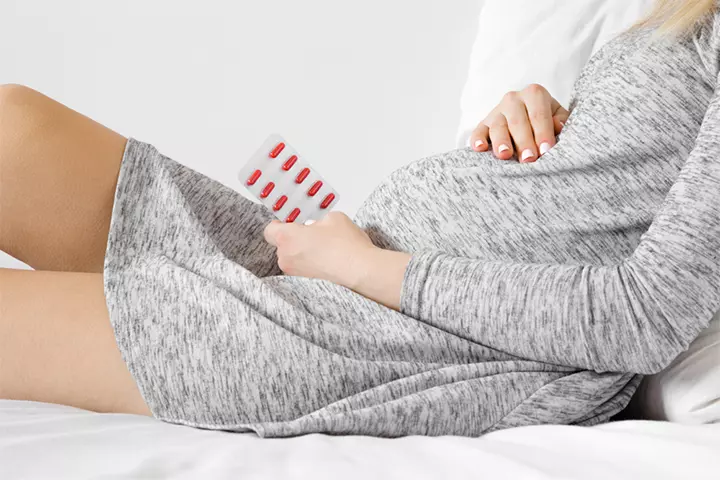
- Antibiotics: To boost your immune levels, your doctor might suggest some medications for regulating your health. They could also cause green pee or poop during pregnancy.
The above is the benign list of causes for green poop. A few medical conditions may also lead to unusual changes in the appearance of the poop, which could include a change in the color of stool to green.
Medical causes
- Celiac disease: Celiac disease is an autoimmune diseaseiThe failure of a body’s defense mechanism to recognize its cells, thus attacking them. that may develop when gluten (a protein present in wheat, barley, and rye) causes immune reactions. It could lead to inflammation of the small intestine, thereby hindering nutrient absorption (5).
- Pseudomembranous colitis: It is an inflammatory condition of the colon due to the overgrowth of the bacteria Clostridium difficile (or C. Diff. Colitis) that throws everything off balance. It could be a result of taking certain antibiotics and medications (6).
- Giardia: It is an intestinal parasitic infection that you could contract by consuming contaminated water and food. In most cases, it clears on its own, and in some severe cases, you might need antibiotics (7).
- Irritable bowel syndrome: Here, the muscles that help the food move through the large intestine either contract actively or for a longer time. It, therefore, might cause gas, diarrhea, and bloating, which could change the appearance of the poop (8).
- Crohn’s diseaseiA chronic inflammatory disease that causes inflammation of the gastrointestinal (GI) tract that extends from the stomach to the anus. : This condition might affect a small part of the intestine and colon, thereby changing the digestion process (9).
- Ulcerative colitis: It is a bowel disorder that affects the inner lining of the colon and rectum, and may cause inflammation and ulcers in the tract, leading to digestive issues and abdominal cramps (10).
- E.coli: Found in feces of humans and animals, this bacterium spreads when you consume contaminated food and water. Undercooked meat could also be a source of this bacteria. Consuming such foods could lead to abdominal cramps and diarrhea.
- Salmonella food poisoning: Another bacterium, salmonella, is contracted through contaminated food and water and could cause diarrhea and abdominal cramps. It also spreads through the consumption of undercooked poultry meat.
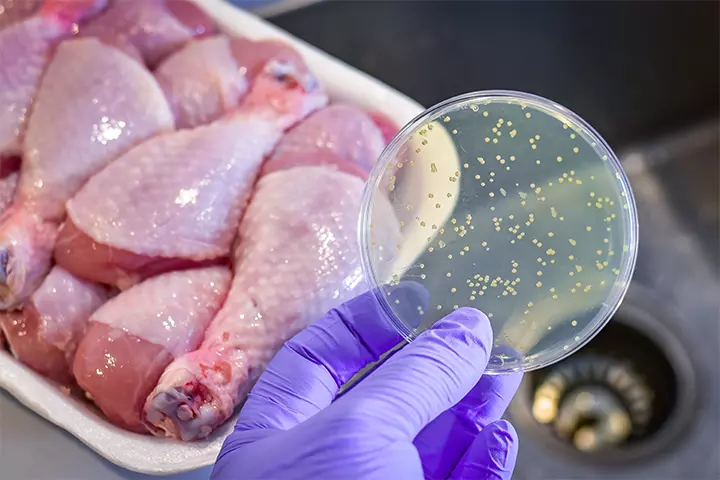
- Viral gastroenteritis: Also called stomach flu, it is spread through the consumption of contaminated food or water or sharing of food, utensils, or towels with the infected person (11).
What Can You Do About Green Poop During Pregnancy?
There is no need to worry or get hysterical about a change in the stool color. More often, it is because of dietary changes, medicines, and hygiene. Expecting such changes can alleviate unnecessary concerns.
- If you are sure that it is due to the dietary changes you made, it is not a matter of concern.
- If you are on antibiotics, talk to your doctor and change the dosage or medicine if necessary.
- Maintain hygiene by washing hands before eating and after using the washroom. Also, wash and cook all the food thoroughly to stay away from bacterial and viral infections.

- Last but not least, eat food on time and have a balanced diet for optimal functioning of the digestive system.
How Long Will It Last?
Green poop, in general, due to digestive changes, could last for a couple of days to a few weeks. It differs from woman to woman and might also depend on the causes.
Should You Worry If Your Poop Has An Unusual Smell?
Usually, there is no need to worry and panic about the unusual smell that accompanies green stools.
When Should You Talk To A Doctor?
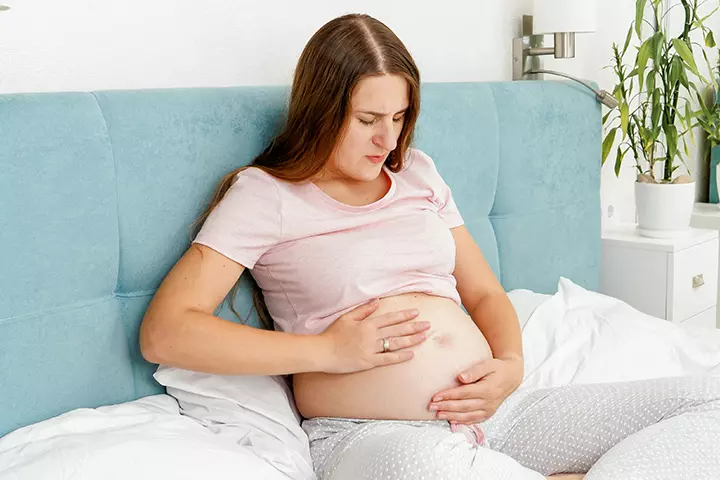
You may ignore the change in poop color as long as it is not frequent and is accompanied by severe gastrointestinal discomfort. But seek medical help if you experience the following symptoms while passing green poop.
- Diarrhea or watery stools
- Blood or mucus in the stools
- Nausea and vomiting
- Constipation
- Loss of appetite
- Headaches, dizzinessiAn altered sense of balance, including lightheadedness, feeling faint, weak, or having a spinning sensation. , or lightheadedness
- Abdominal discomfort
- Yellow skin and yellow eyes
 Be watchful
Be watchfulNote that this is not an exhaustive list of symptoms, and you should see a doctor if you notice any other unusual signs. Additionally, persistent color change in stools can make pregnant women anxious, stressed, and hypervigilant all the time, which may require to be evaluated by a healthcare professional.
Frequently Asked Questions
1. Should I consider green poop as a sign of labor?
When nearing the end of pregnancy, numerous expectant women may encounter episodes of diarrhea. It may be green or other color. If you have been eating a lot of green vegetables, supplementing with iron, or consuming antibiotics, your stool can turn green.
2. Does my green poop point to gallbladder problems during pregnancy?
Cholestasis of pregnancy is a liver condition that slows or stops the regular flow of bile from the gallbladder, thus affecting your health during pregnancy. It makes the poop light in color (14). Infection in the gallbladder can also lighten the color of poop, making it look greenish (15). Bile produced in the liver and kept in the gallbladder can be yellow or green. So, green poop can indicate a gallbladder problem.
3. When does green poop start in pregnancy?
Green poop during pregnancy can start at any time. If you pass green poop with diarrhea-like symptoms or see blood in stool during pregnancy, contact your doctor.
4. Can green poop during pregnancy harm the baby?
No evidence outlines the direct relationship between green poop and its ability to harm the growing baby. However, if green poop is accompanied by nausea, yellow skin and eyes, abdominal discomfort, and blood, you should seek immediate medical attention.
5. How can I prevent green poop during pregnancy?
Most of the time, green poop is a side-effect of dietary changes or consuming prenatal supplements during pregnancy (3) (4). If it is diet-related, you will notice a color change once you stop consuming that food. If it is supplements related, you may consult your doctor.
6. Is there any treatment for green poop during pregnancy?
Green poop, if caused by dietary inclusions or iron supplements, may go on its own in a few days or weeks. According to gynecologist and obstetrician Dr. Hrishikesh Pai, “Treatment depends on the cause and severity of symptoms. Dietary adjustments, hydration, increased fiber intake, and mindful use of iron supplements are common approaches. Probiotics may also be recommended to restore healthy gut bacteria and aid digestion.” However, if infection-like symptoms accompany it, a proper treatment plan for the specific cause must be undertaken after consultation with the doctor.
7. Is there a difference between light green and dark green poop during pregnancy?
There is no distinctive medical difference between light green and dark green poop.
8. Can green poop during pregnancy be a symptom of gestational diabetes?
There is no research to validate the claim that green poop may be a symptom of gestational diabetes. Frequent urination, blurred vision, and thirstier and hungrier than usual are typical symptoms of gestational diabetes (16).
9. Can dehydration during pregnancy cause green poop?
No research has proven that dehydration may cause pregnant women to have green poop. Dark yellow-colored urine and maternal overheating are typical symptoms that pregnant women may experience due to dehydration (17). Hence, you need to pay attention to your urine color in pregnancy. It can provide valuable information about your hydration levels.
10. Can green poop during pregnancy be a sign of food intolerance or allergy?
A change in poop color to green does not occur in all women and is not a major cause of concern. Green poop during pregnancy could be caused by something as simple as eating too many green leafy vegetables, iron-rich food, antibiotics, or foods containing green food color. However, in rare cases, certain severe medical conditions, including IBS, celiac disease, or infections, could also be the underlying cause. So, if the change in poop color persists and is accompanied by other serious symptoms such as constipation, headache, diarrhea, or fever, see a doctor for a proper diagnosis and treatment.
Infographic: Additional Approaches To Consider For Green Poop During Pregnancy
Changing bowel movements or poop color might cause concern when pregnant. Although usually, green poop could result from diet and medications, the tips mentioned in this infographic can help you deal with it better during pregnancy.

Illustration: Momjunction Design Team
Illustration: Is It Normal To Have Green Poop During Pregnancy?

Image: Stable Diffusion/MomJunction Design Team
References
1. Comprehensive Stool Analysis; Doctor’s Data, Inc (1999-2017)
2. Tina Comston; Why is my poop green; BuckMD Blog; The Ohio State University
3. Scott LaFee; End Results: What color is your poop and other pressing fecal matters; UC San Diego (2018)
4. Anemia in Pregnancy; University of Rochester Medical Center Rochester
5. Celiac disease; Harvard Health Publishing (2019)
6. Begoña Martinez de Tejada; Antibiotic Use and Misuse during Pregnancy and Delivery: Benefits and Risks; International Journal of Environmental Research and Public Health (2014)
7. Giardiasis; Harvard Health Publishing (2024)
8. Irritable bowel syndrome; Office on Women’s Health
9. Cimpoca BA et al.; Managing Crohn’s Disease during Pregnancy; Maedica (Buchar) (2016)
10. Ulcerative Colitis; Cedars-Sinai
11. Infections and Intoxications of the Intestines; A.T. Still University of Health Sciences
12. Anemia in Pregnancy; Stanford Medicine Children’s Health
13. Why Is Your Poop Green; Cleveland Clinic
14. Cholestasis of Pregnancy; Rochester.edu
15. Why is your poop green? Clevelandclinic.org
16. Gestational Diabetes? Stanford Medicine
17. Dehydration During Pregnancy; American Pregnancy Association
18. Pregnancy and Allergies; Allergy and Asthma Network
19. Food intolerance; NHS
Community Experiences
Join the conversation and become a part of our nurturing community! Share your stories, experiences, and insights to connect with fellow parents.
Read full bio of Dr. Burcu Saygan Karamürsel
- Dr. Hrishikesh Pai is an IVF specialist, gynecologist, and obstetrician. He is the founder and managing director of Bloom IVF. Dr. Pai is the president and former secretary-general of the Federation of Obstetric and Gynaecological Societies of India (FOGSI).
 Dr. Hrishikesh Pai is an IVF specialist, gynecologist, and obstetrician. He is the founder and managing director of Bloom IVF. Dr. Pai is the president and former secretary-general of the Federation of Obstetric and Gynaecological Societies of India (FOGSI).
Dr. Hrishikesh Pai is an IVF specialist, gynecologist, and obstetrician. He is the founder and managing director of Bloom IVF. Dr. Pai is the president and former secretary-general of the Federation of Obstetric and Gynaecological Societies of India (FOGSI).
Read full bio of Rebecca Malachi
Read full bio of Dr. Ritika Shah
Read full bio of Reshmi Das











